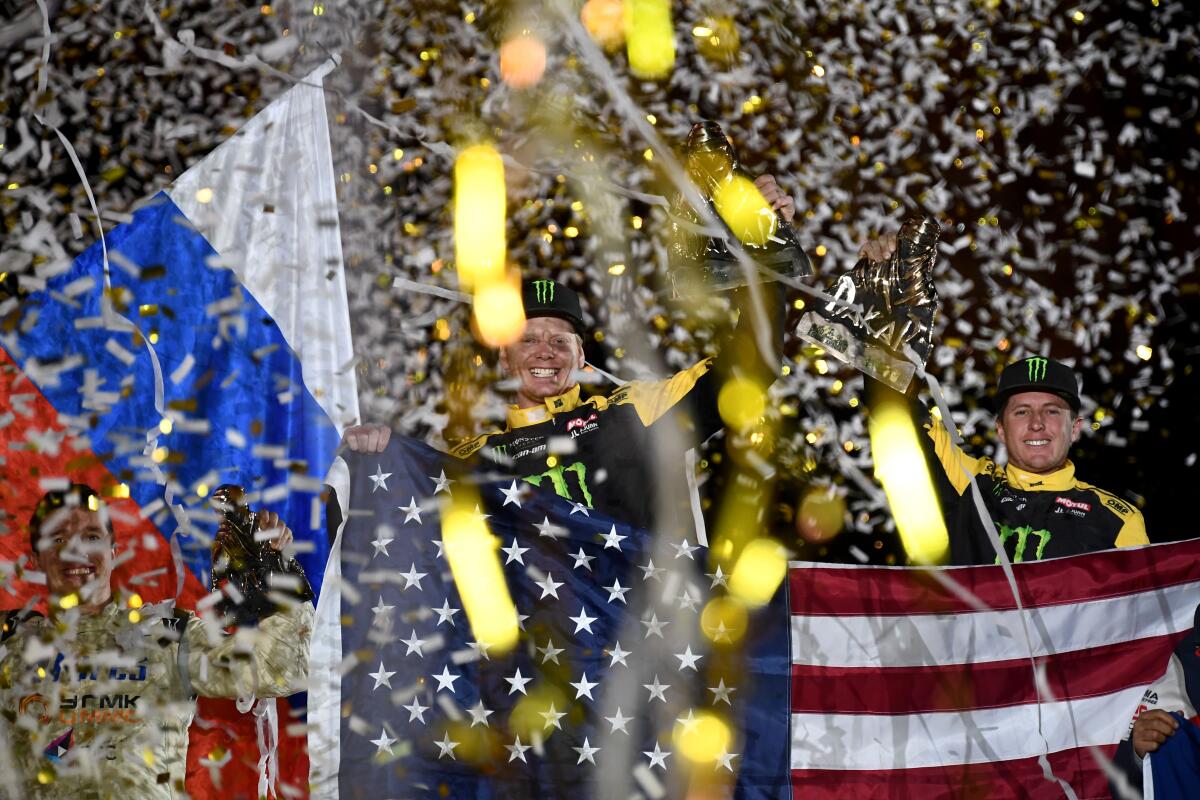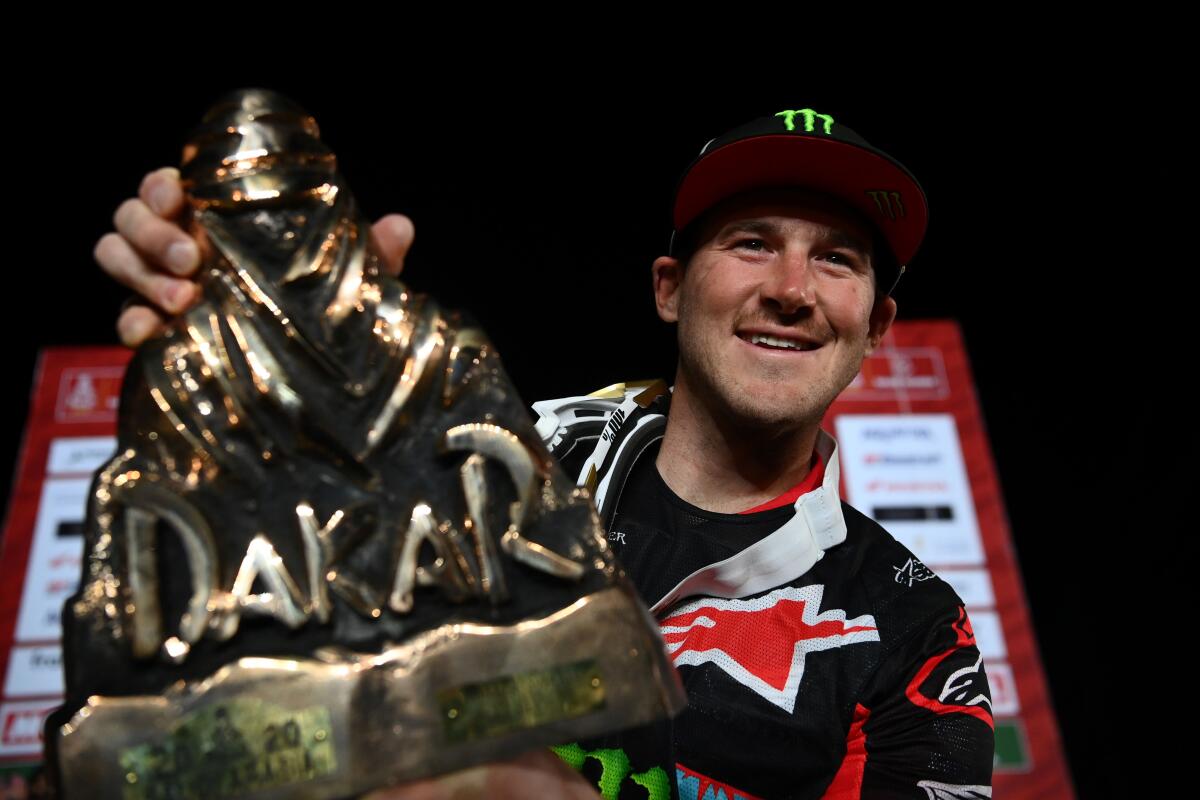Casey Currie and Ricky Brabec become first Americans to win at Dakar Rally

- Share via
For more than 40 years, off-road racers from around the world have thrown themselves at the Dakar Rally, considered by many the most grueling challenge in all of motor sports.
They have driven cars, trucks, motorcycles and dune buggies through rugged wilderness, navigating by map and compass, fashioning quick repairs on the fly. Never has an American finished first.
Until now.
Two Southern Californians made history in Saudi Arabia on Friday, with Casey Currie of Corona winning in the side-by-side vehicle class and Ricky Brabec of Hesperia taking the motorcycle category.
“Two Americans on top,” Currie said. “I’m blown away, man.”
The victory required 12 days of negotiating a 4,881-mile course that began at the Red Sea and looped eastward toward the Persian Gulf. Of the 342 vehicles that started in the port city of Jeddah, only 234 reached the finish line in Riyadh.
“At the end, we put the pieces to the puzzle together,” Brabec said. “We had to be smart and focused every day.”

In “rally raids,” competitors leave the starting line at staggered times, making their way through daily stages that cover hundreds of miles of unmarked territory. There are no road signs, no GPS and only sporadic checkpoints.
Anyone who gets lost must waste precious time circling back. The cost of pushing too hard can be far worse.
The Dakar has a long history of fatal crashes and spectators struck along the course. This year, a Portuguese motorcyclist was killed in a crash during the seventh stage.
A Frenchman named Thierry Sabine got the idea for the rally in the late 1970s after getting lost on his motorcycle in the Libyan desert. His creation took its name from the original route, which stretched from Paris to the capital city of Senegal.
Officials moved the event to South America in 2009. It was held in Saudi Arabia for the first time this winter, zigzagging through canyons and mountains in the west, then crossing the sands of the “Empty Quarter” region.
“For me, Saudi Arabia is the definition of Dakar,” Currie said while waiting for his 4 a.m. flight home. “You have massive sand dunes for miles, valleys of stone that are razor sharp. There’s silt and bushes. The terrain, you’re getting all of it.”
Currie, 36, was making his second try at the Dakar after finishing fourth last year. Along with a new co-driver, Sean Berriman, a Las Vegas resident who served as navigator, he took a measured approach, staying near the top of the rankings through the early going.
Corona native Casey Currie, and hundreds of others, will be driving into the unknown when the Dakar Rally starts in Saudi Arabia for the first time.
Currie and Berriman weathered flat tires, a damaged engine belt and a broken axle along the way. At the start of the second week, they began to open a gap over their closest competition and ended up with a 39-minute advantage over Sergei Kariakin of Russia.
“It’s a game of chess,” Currie said. “We tried to be strategic on where we finished every day.”
Brabec was looking to overcome bad memories. He led the rally with only a few stages to go last year, but had to withdraw with a blown engine. This time, on his fifth start at Dakar, he and his Honda reached the end with a 16-minute cushion over second-place finisher Pablo Quintanilla of Chile.
“I grew up watching Dakar on TV and never seeing an American succeed,” Currie said. “Now the opportunity is there.”
Carlos Sainz won his third title in the car class.
More to Read
Go beyond the scoreboard
Get the latest on L.A.'s teams in the daily Sports Report newsletter.
You may occasionally receive promotional content from the Los Angeles Times.










